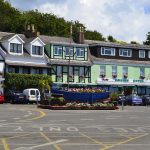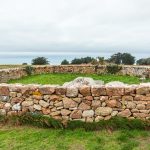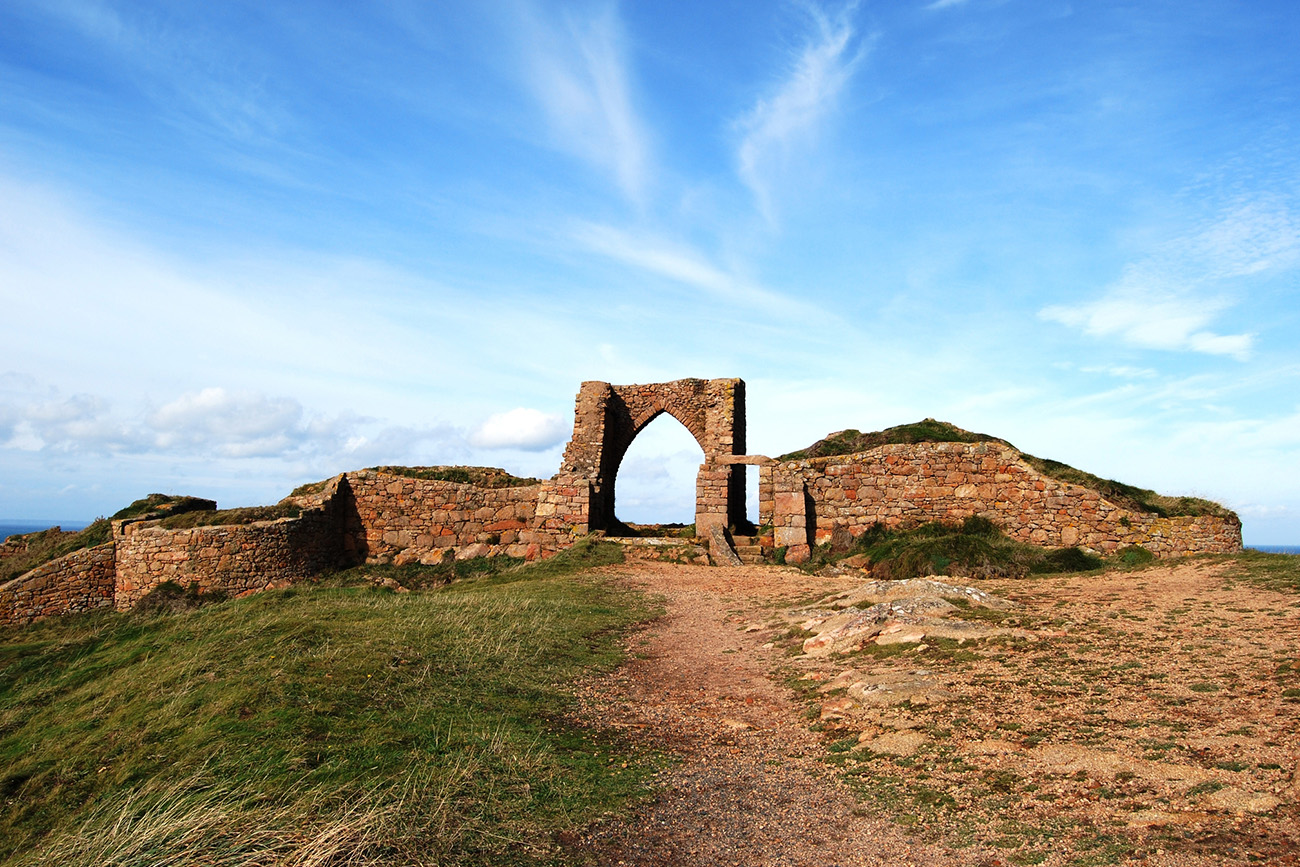
The Channel Islands are proximate to the French mainland and a good distance from England. It is therefore peculiar that they have ended up as part of the United Kingdom today. The roots of that association are to be found in the High Middle Ages.
The islands had been part of the Frankish kingdom and the empire of Charlemagne in the eighth and ninth centuries. They were so as the Viking raids on the north of France began in the 820s.
For decades the Vikings or Norsemen were content to raid places like northern France, Britain and Ireland and then return to Scandinavia with their slaves and loot. But in the second half of the ninth century, they began to realise that they could actually settle in these regions and carve out their own fiefdoms.
In the case of France, a Viking warlord by the name of Rollo established a presence along the lower course of the River Seine in the early tenth century and from there raided Paris. Eventually the King of West Francia, Charles the Simple, decided it was better to accommodate him than to have him as an enemy and so he granted Rollo the lands his Norsemen had settled on and gave him the title of Count of Rouen.
In time these Scandinavian settlers became known as the ‘Normans’, a bawdlerisation of ‘Norsemen’, and the territory they occupied became known as ‘Normandy’, which effectively means ‘land of the Norsemen’.
Rollo’s successors would eventually hold the title of Duke of Normandy. One of the territories which they came to control, unsurprisingly, given their emergence as a naval power in the North Sea, was the Channel Islands, beginning when Rollo’s son and successor, William Longsword, seized Jersey in 933.
The Islands Under Norman Rule
William’s actions began centuries of Norman rule on the islands. In the first decades of Norman rule new laws were introduced which still form much of the bedrock of Jersey law today, albeit with elements of French law and the English common law. There was also some considerable migration from the French mainland to the islands and agriculture and other economic activity expanded.
The tenth and eleventh centuries was the first time that the islands had been close to the political centre of the state by which they were controlled. In ages gone by the political overlords of the islands had been the Romans or the Franks and with Rome and Paris so far away the islands had been something of a remote provincial backwater.
Not so under Norman rule.
The new rulers of the islands were just a short boat ride away in Rouen and the islands prospered as a result of being an integral part of the Norman polity.
Prominent Norman lordly families acquired extensive lands on the islands and developed them substantially.
Part of England and the Hundred Years’ War
The Channel Islands’ long association with England came through Norman rule. In 1066, William, Duke of Normandy, led an army across the English Channel to impose his claim to the English throne following a succession crisis there.
Over the next several years he undertook the Norman Conquest of England, eventually becoming both King of England and Duke of Normandy. Many of his successors were not as politically and militarily accomplished or as ruthless as he was and eventually the kings of England lost control of the Duchy of Normandy, with King John II relinquishing it to the French in 1204. But while the lands on the mainland were lost, the Channel Islands remained under English rule. Thus, the Norman Conquest of England eventually resulted, somewhat circuitously in England acquiring the Channel Islands.
And the English were determined to retain control of the archipelago.
The loss of the Duchy of Normandy to the French in 1204 seems to have been the spur to the militarisation and fortification of the islands by the English.
The famous Mont Orgeuil (‘Mount Pride’), one of the most spectacular examples of castle-building of the High Middle Ages anywhere in Europe, was built on a hill promontory on the western end of Jersey in the late 1200s and early 1210s.
It became the most significant military fortification on the islands and withstood numerous attacks by the French in the period that followed. Many of these attacks came during the Hundred Years’ War, fought between 1337 and 1453 between England and France as England sought to resurrect its control over significant parts of France, ultimately with little success and the loss of nearly all of its remaining continental territories with the exception of Calais.
During the long conflict several efforts were made by the French to seize Jersey, Guernsey and the other islands. For instance, in 1383 the Constable of France, Bertrand du Guesclin, launched an amphibious assault on Jersey with a force of 2,000 men, but while they broke through the outer perimeter of Mont Orgeuil, they could not seize the upper keep and ultimately withdrew from the islands. Thus, despite the loss of so much land in France itself, England retained control of the Channel Islands though the High and Late Middle Ages.
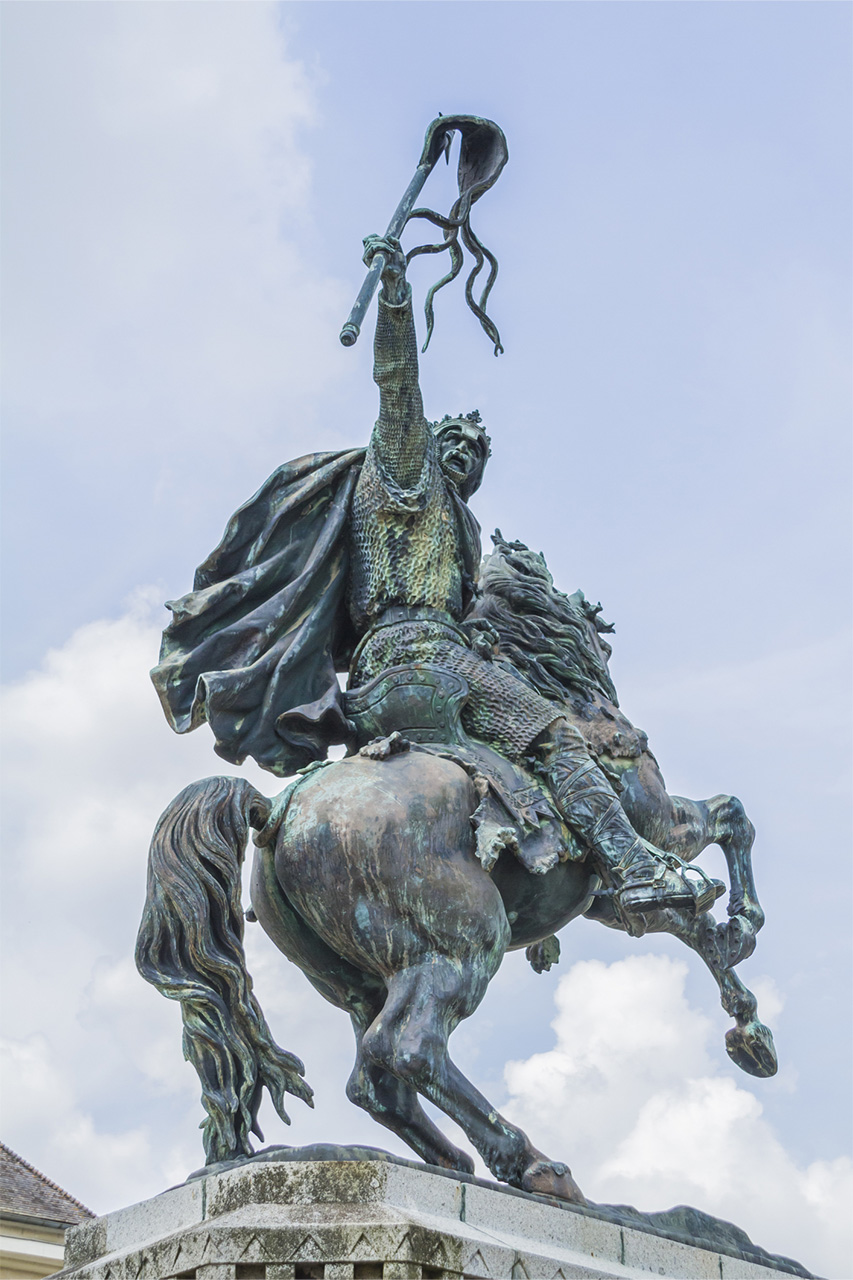
William, Duke of Normandy
The Political and Social Evolution of the Channel Islands
The political set-up and status of the islands also evolved during this era in ways which continue to have implications down to the twenty-first century.
In the late 1280s, during the reign of King Edward I, Otto de Grandson was appointed as governor of the islands. In 1290 he introduced some wide-ranging reforms which established the bailiwicks of Jersey and Guernsey as independently governed entities.
This situation continued in the Late Middle Ages and in the fifteenth century Lieutenant Governors were established on Jersey and Guernsey, paving the way for the semi-autonomous status which the islands have enjoyed within England ever since. They also evolved in other ways which differed from the British mainland.
While the Normans who had conquered and settled in England eventually developed a new language there which was a mixture of French and Anglo-Saxon, what we now know as the English language, Norman French and variant of it were retained on the islands and remained the dominant language until the twentieth century.
Meanwhile, the bubonic plague ravaged the islands from the mid-1340s onwards. Their island status did not stop approximately 30% to 40% of the population being killed, a similar figure to what happened elsewhere in Western Europe as a result of the Black Death.
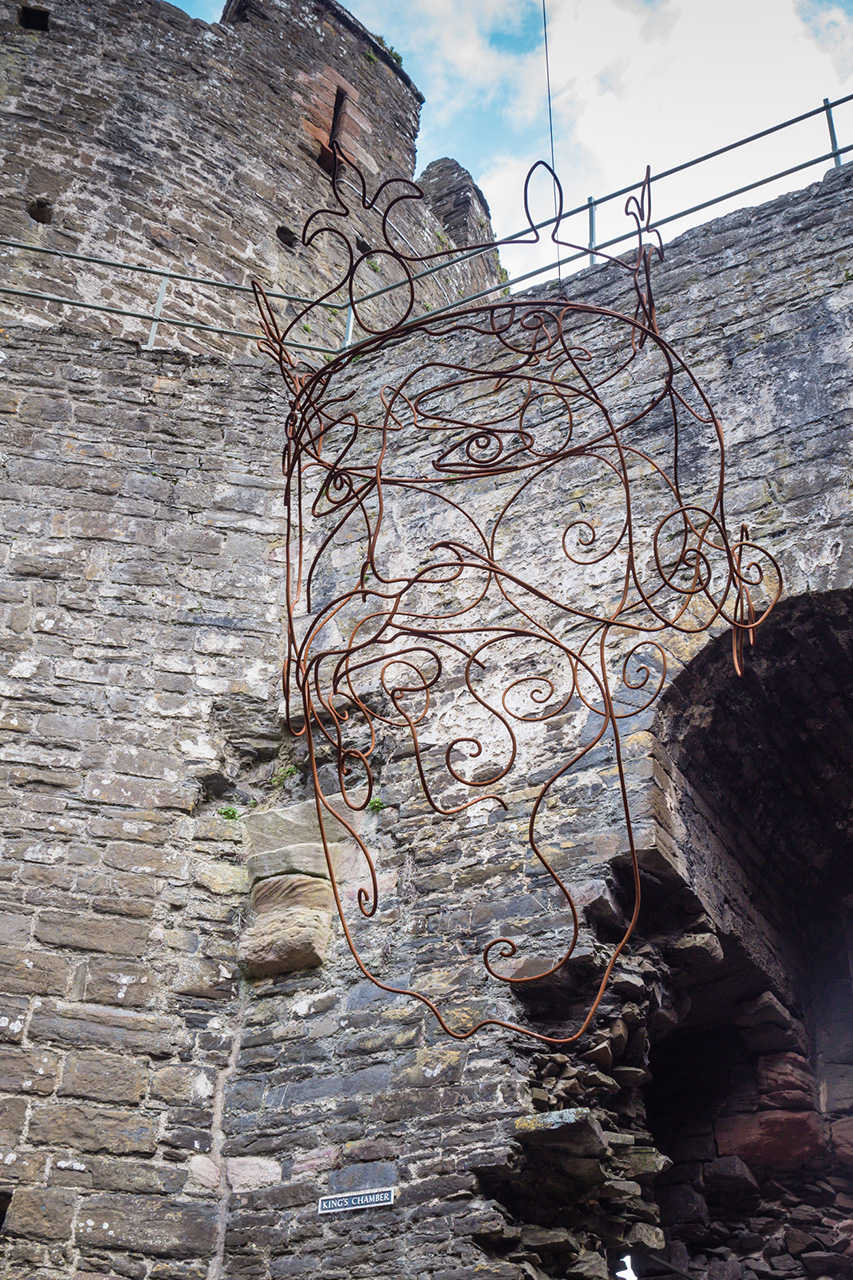
Image made of wire presenting King Edward I
The War of the Roses
The closest that the Channel Islands came to being lost to France came at the end of the Middle Ages.
Beginning in the 1450s civil war broke out in England between the House of Lancaster, headed by King Henry VI, and the rival House of York, headed by the Dukes of York. Henry VI was mentally incapacitated for much of his reign, having suffered a psychological collapse in the early 1450s and this led Richard, Duke of York, to begin pressing his claim to the throne. The War of the Roses would drag on intermittently for thirty years until the rise of the House of Tudor in 1485.
As part of this Queen Margaret of Anjou, Henry VI’s wife and the woman who often ruled on her husband’s behalf, with the goal of ensuring that their son Edward would succeed the incapacitated Henry one day, formed an alliance with the French in the early 1460s against the Yorkists.
Owing to this, a French army led by Pierre de Brézé invaded the Channel Islands in 1461 and on this occasion, unlike du Guesclin back in 1383, the French were able to seize Mont Orgeuil and occupy Jersey.
Under other circumstances the Channel Islands might have become a part of France at that stage, but the French crown had its own domestic weaknesses and issues in the fifteenth century and in 1468 King Edward IV, the Yorkist King of England, was able to recapture the Channel Islands.
It was Edward who subsequently issued the charters of Jersey and Guernsey and appointed some of the first Lieutenant Governors, bailiffs and constables to the islands. The Channel Islands would remain part of England henceforth.
Would you like to learn more about the history of the Channel Islands? Then don’t miss out on the following article: Jersey war tunnels and Mont Orgueil Castle in Jersey


